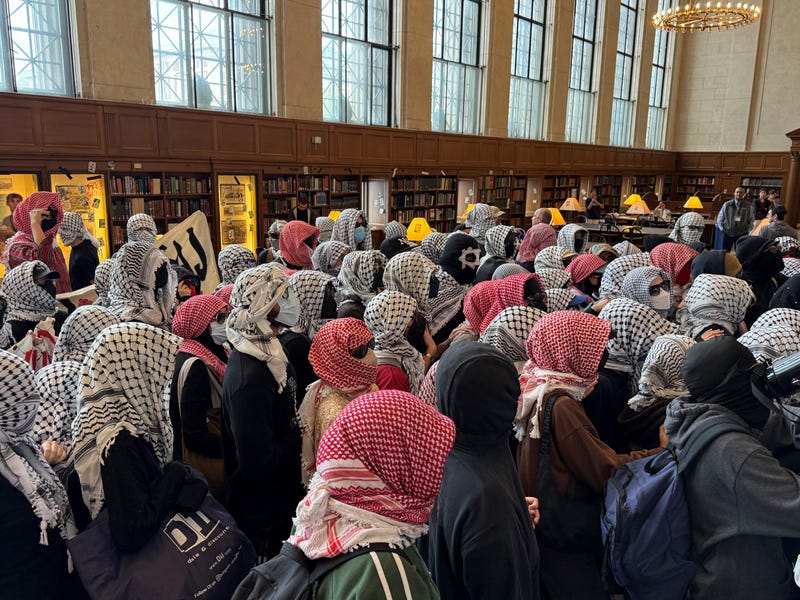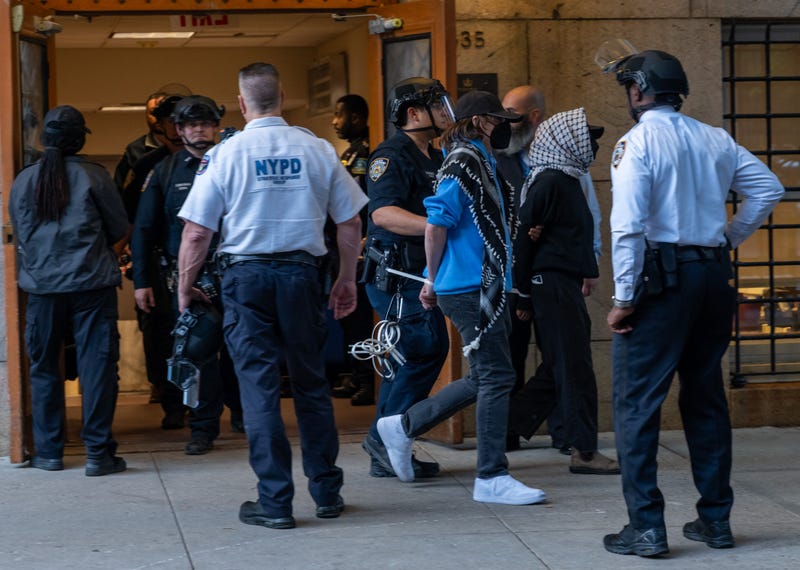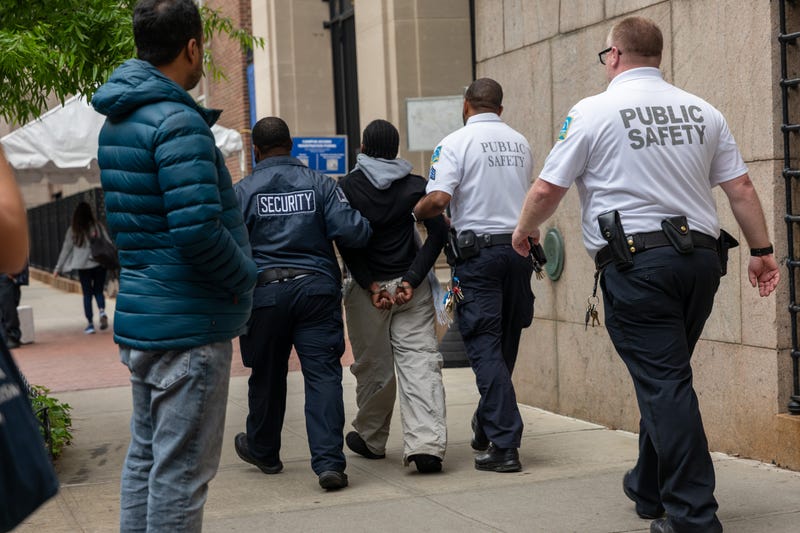
NEW YORK (BLOOMBERG) -- The crackdown was swift and the message was unequivocal: Columbia University has little tolerance for protesters who spark chaos on campus.
The school’s acting president, Claire Shipman, said she was “incensed” after masked demonstrators on Wednesday burst into the school’s main library and draped Palestinian flags along its walls, disrupting 900 students studying for final exams. By the end of the day, the police were called in, protesters were cleared out and 80 people were arrested.
“We, at Columbia, value freedom of speech, robust debate, and peaceful protest. Today’s disruption of Butler Library was not that,” Shipman said in a video. “There is a clear line between legitimate protest and actions that endanger others and disrupt the fundamental work of the university. The disciplinary proceedings will reflect the severity of the actions.”
The pace and forcefulness of the response by the university marks a shift from last year, when Columbia was criticized for equivocation, inaction and tolerance of antisemitism as protests against Israel’s military campaign in Gaza gripped the Morningside Heights campus. It took almost a year for the school to issue expulsions and multi-year suspensions to students involved in the takeover — and vandalism — of a different campus building in April 2024.

Shipman’s comments reflect the rapid changes in the political, cultural and financial landscape over the past year. After defeating Kamala Harris in the 2024 election, US President Donald Trump embarked on a campaign targeting elite universities that he says promote left-wing ideals at the expense of conservative values.
His administration has yanked $400 million in funding to Columbia, accusing it of an inadequate response to complaints of antisemitism since the Oct. 7, 2023, attack by Hamas on Israel.
On Thursday, the reaction from at least one part of the Trump administration appeared to be shifting. Its Joint Task Force to Combat Anti-Semitism praised Shipman for her swift action, striking a far different tone than earlier missives aimed at Harvard University and, initially, Columbia.
“She has stepped in to lead Columbia at a critical juncture and has met the moment with fortitude and conviction,” the task force said in a statement on Thursday. “We are grateful for the public safety officers who acted swiftly, and at a danger to themselves, to secure the library.”

Strategy Shift
The tenor and strategy of the protesters has also transformed. Columbia University Apartheid Divest, a group that has led the protests, has gone from demanding support for Palestine and divestment from Israel to backing armed resistance.
When demonstrators took over Hamilton Hall at Columbia last year, they demanded that it be renamed “Hind’s Hall,” a reference to a child killed in Gaza. On Wednesday, they invoked the name of Basel Al-Araj, a Palestinian activist killed by Israel’s defense forces in 2017 for allegedly preparing attacks against the Jewish state.
US Representative Elise Stefanik, a New York Republican who’s demanded the resignation of college presidents for their handling of campus protests, initially cited Wednesday’s demonstrations as validation for Trump’s freezing of taxpayer dollars. “Columbia must act — enough is enough,” she said.
Once the arrests were made, Stefanik lauded police for “restoring law and order” on the campus. In a subsequent appearance on Fox News, she reiterated her praise for the law enforcement but didn’t specifically credit Shipman for the action.
The Department of Justice was happy to see arrests made, Assistant Attorney General for Civil Rights Harmeet Dhillon said in an interview. “What remains to be seen is whether those crimes by these offenders are appropriately prosecuted or not, and we’re monitoring that.”
Diminished Drive
Protests across the US have diminished in size but are sporadically breaking out, only to face quick repercussions. Last month around 200 protesters at Yale University gathered on the campus’s main plaza to form a tent encampment in protest of Israel’s national security minister, Itamar Ben-Gvir, who was scheduled to give a talk off campus, according to Yale Daily News.
The university gave warnings to disperse and threatened possible arrest, and the encampment dissolved before midnight.
The Trump task force on antisemitism said it was “cautiously encouraged” by Yale’s actions.
Earlier this week at the University of Washington, demonstrators who oppose Israel’s campaign in Gaza set waste bins on fire, blocked streets and took over the new Interdisciplinary Engineering Building that was built with help from a $10 million Boeing Co. gift.
At least 30 people were arrested at the Seattle campus. University President Ana Mari Cauce condemned what she said was a “violent and illegal occupation” of the facility, and stated that any students found to be among those responsible would face “appropriate consequences for their actions.”
The task force said it would probe the events at the university.
More stories like this are available on bloomberg.com.
